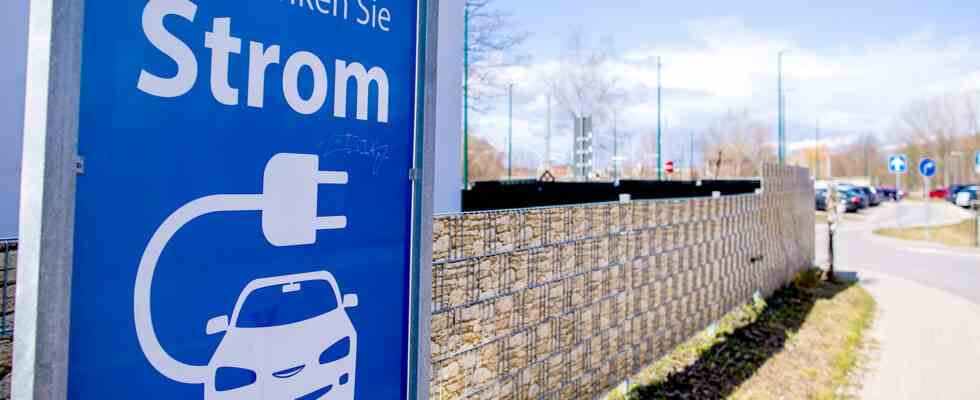Status: 01/10/2023 03:54 am
At the “Mobility Summit” today, the Chancellor is advising the automotive industry on e-cars and charging stations. Representatives of bicycle, train and public transport feel uninvited.
The federal government does not simply speak of a “mobility summit”, the official term comes in the finest bureaucratic German. It is “the first top-level discussion of the strategy platform transformation of the automotive and mobility industry,” explains government spokesman Steffen Hebestreit.
The name of this new summit format used to be more catchy: the coalition agreement only mentions the “transformation of the automotive industry”. Transport associations found the focus on the car too backward-looking. Only after their criticism was the term “mobility” added to the name.
But Dirk Flege, the managing director of the Pro-Rail Alliance, is still not satisfied: “There has been a re-labeling here, which we can’t explain in any other way than a misnomer, given the very car-heavy list of participants.”
The car bosses are invited for the first time
Because: Above all, the bosses of the big car companies – Mercedes, VW and BMW – will sit together with Chancellor Olaf Scholz and some of his ministers today. There are also representatives from the supply industry. Those who lobby for bus and train travel feel left out: “What kind of mobility economy is it if bicycles, trains and public transport are not part of it?” asks Wasilis von Rauch, Managing Director of the Federal Bicycle Future Association.
Government spokesman Hebestreit tries to calm things down: Summits of this kind are not just about the car industry: “It’s the first meeting of this format, it’s only just happening now. This meeting has this focus. There will be more meetings and there will certainly be also address the entire spectrum of mobility.”
More charging stations needed – but how?
Today, electromobility should be the focus. The federal government wants Germany to become one of the leading markets for it. The goal: by 2030, 15 million electric cars should be on the road in Germany. But at the moment there are only around 1.6 million.
One of the biggest problems is that the construction of new charging stations for electric cars is not progressing fast enough. This should be a main topic of the meeting. It is also about strengthening supply chains so that car manufacturers are able to produce enough electric cars at all.
Oliver Zipse, CEO of BMW, on BMW’s digital strategy
daily topics 11:15 p.m., 5.1.2023
And the industry should address the conditions it needs to produce competitively in Germany. Because the federal government wants to prevent jobs from being lost abroad. The boss of BMW, Oliver Zipse, announced last week in the daily topics to clearly address the situation of the car manufacturers in the top-level talks. “For things that we cannot control, we will point out certain dangers,” he said. “Keyword: dependency on raw materials. Keyword: data access to vehicles. We’re loud about it, these are requirements for the framework conditions.”
Two hours are scheduled for the summit meeting in the afternoon. It is questionable whether it will be possible to make decisions in this time. It should only become really concrete at the next meetings in this format.
Speed in the traffic turnaround: Scholz invites you to the mobility summit
Oliver Neuroth, ARD Berlin, 10.1.2023 08:01 a.m

